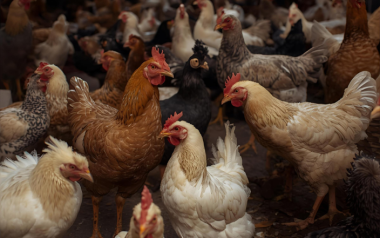Sources: Available upon request
28 May 2025
Manifesto calls for stronger support of British eggs
In a bold move to protect domestic agriculture and food safety, the British Egg Industry Council (BEIC) has launched a new manifesto urging food businesses and manufacturers to prioritize British eggs over imported alternatives.
In a bold move to protect domestic agriculture and food safety, the British Egg Industry Council (BEIC) has launched a new manifesto urging food businesses and manufacturers to prioritize British eggs over imported alternatives. The campaign, titled the “Manifesto for Eggcellence,” highlights growing concerns over the use of “hidden” imported egg ingredients in UK-manufactured foods.
The manifesto outlines four key demands: stop using imported eggs in UK-made food products, end the use of the Union Flag on products containing non-British eggs, require clear labeling of egg origin, and deprioritize companies using imported eggs in public procurement.
Mark Williams, chairman of the BEIC, emphasized the inconsistency in sourcing practices. “While British eggs are proudly displayed on supermarket shelves, many food manufacturers continue to use imported eggs in products like sandwiches, quiches, and salads—often without consumers’ knowledge,” he said. This dual standard, he argues, undermines consumer trust and the livelihoods of British farmers.
A recent petition supporting the manifesto gathered over 50,000 signatures, with 81% of UK shoppers expressing a preference for British eggs in domestically produced food. The BEIC argues that this consumer sentiment should be reflected in industry practices.
The manifesto also presents a compelling case for food safety. Data from the UK Health Security Agency shows that imported egg products were the leading cause of salmonella outbreaks in the UK between 2015 and 2020. In contrast, British eggs produced under the British Lion Code of Practice adhere to world-leading safety and welfare standards, including full traceability and a ban on eggs from salmonella-positive flocks.
Animal welfare is another cornerstone of the campaign. The British Lion scheme enforces strict welfare standards, including mandatory training for workers and a ban on barren battery cages—still used in some countries exporting eggs to the UK.
The BEIC’s message is clear: supporting British eggs is not only a matter of national pride but also a commitment to food safety, animal welfare, and environmental sustainability. By reducing food miles and supporting local producers, the manifesto aims to create a more transparent and ethical food system.
As the UK navigates post-Brexit trade dynamics and increasing consumer awareness, the call to “Back British Eggcellence” is gaining momentum—challenging food businesses to align their sourcing practices with the values of their customers.







































